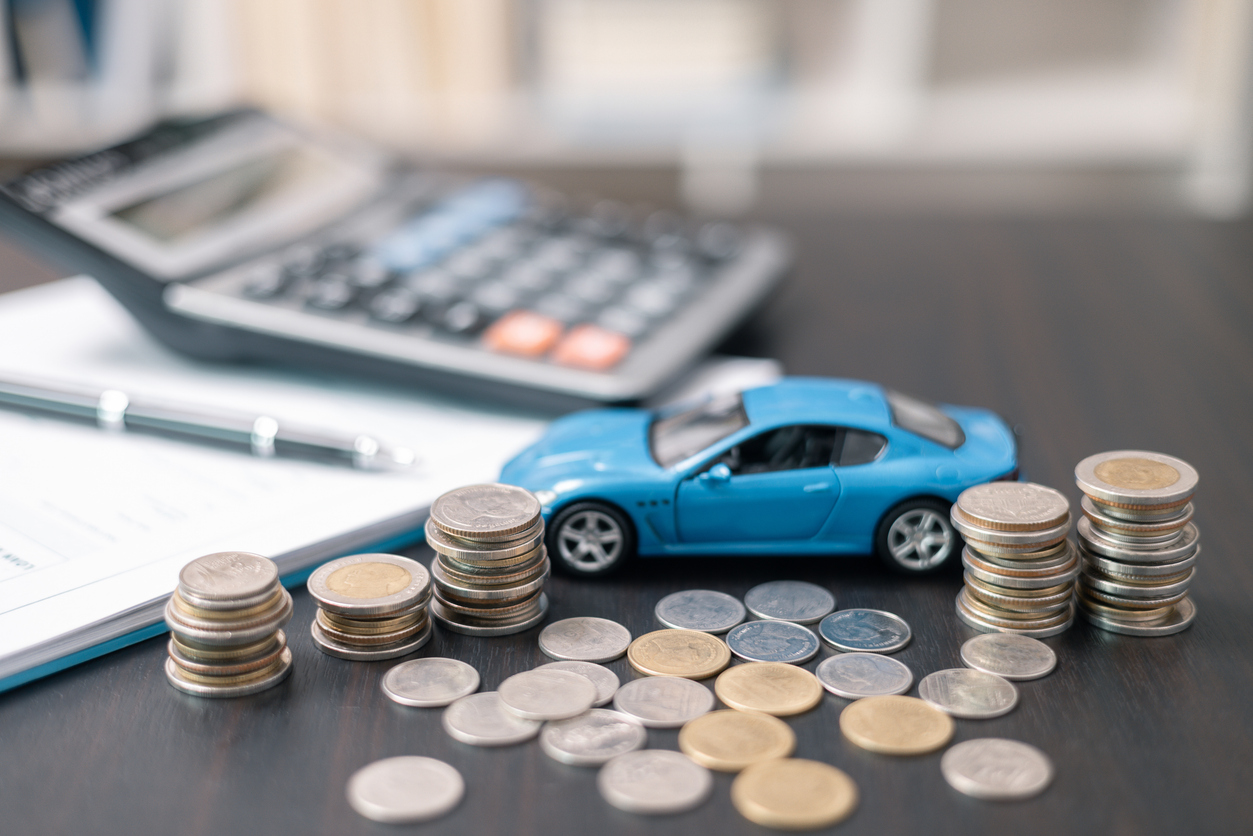Car Allowance Guide
How Car Allowance Works & Whether It’s Right for You

So, you have the option of a car allowance, or maybe you have seen a car allowance mentioned in a job advert you are interested in. Let's walk through exactly what a car allowance is, so that you know exactly what it means...
What Is a Car Allowance?
Simply put, a car allowance is extra money your employer adds to your salary to help cover your car costs. Instead of giving you an actual company car, they're essentially giving you cash to sort it yourself.
The great thing about this is that you've got the freedom to get whatever car you want; you might even already have a car, in which case it's just extra cash for you, although you may need to maintain it better than you usually would if you're using it for work. You may also need to update your insurance policy if you are now using your car for business purposes.
But here's the catch that many people don't realise until it's too late: that car allowance counts as income, which means the taxman will want his share before you get yours.

What Does Car Allowance Mean?
A car allowance is typically paid monthly and added to your salary. This means it's subject to income tax and National Insurance contributions, just like your regular earnings. For example, if you're in the 40% tax bracket and receive an £8,000 annual allowance, you'll only see £4,800 after tax.
Employers may also reimburse you for business mileage. According to HMRC's approved mileage rates, you can claim 45p per mile for the first 10,000 miles in a tax year and 25p per mile thereafter. These reimbursements are tax-free and help cover fuel costs and wear and tear on your vehicle.
Car Allowance vs. Company Car
Imagine you've been offered either a £5,000 car allowance or a company car. Let's see what works out better for you.
With a car allowance, you pick the car, handle the maintenance, and decide what happens when you're ready for a change. Plus, no company car tax, hurray!
A company car, on the other hand, is provided by your employer (you might still have some choice depending on how the business sources company cars), and they cover maintenance and other responsibilities. When something goes wrong, it's their problem, not yours. However, you will need to pay Benefit-in-Kind (BiK) tax, which can be substantial depending on the vehicle's value and CO₂ emissions.
What Can You Do with Your Car Allowance?
Once you've got your car allowance sorted, you've got several ways to use it:
Lease a Car: Personal leasing is popular among those with a car allowance. It works similarly to a company car without the BiK tax. Monthly rentals are typically less than financing, and you don't need to worry about reselling or depreciation. Plus, road tax, breakdown cover, and warranty are included, servicing and tyres too if you opt for a maintenance package.
Finance a Car: If you prefer to own the car eventually, financing options like PCP (Personal Contract Purchase) or HP (Hire Purchase) might be suitable. With PCP, you pay a deposit, monthly payments for a term (usually 4 years), and decide at the end whether to buy the car. HP involves paying off the entire vehicle over the agreed term, resulting in ownership at the end.
Buy Outright: If you've got the cash, you could buy a car outright and treat your allowance as extra income. However, this is less common due to depreciation.
Use Your Current Car: If your current car is suitable, you could pocket the cash and continue using it. Consider the increased depreciation and maintenance costs resulting from higher usage.
Is Car Allowance Taxable?
As mentioned, a car allowance is treated as income, so you'll pay income tax and National Insurance on it. This reduces the net amount you receive. Additionally, you'll be responsible for all vehicle-related expenses, including fuel costs, maintenance, insurance, and any business travel expenses not covered by mileage reimbursements.
In contrast, a company car is considered a taxable benefit, and you'll pay Benefit-in-Kind (BiK) tax based on the car's value and CO₂ emissions. However, the employer typically covers maintenance and insurance costs.
Which Option Makes Sense for You?
A car allowance might be best if:
You have your heart set on a specific car that you can't get as a company car.
You like the freedom to change your cars on your terms.
You don't mind handling the admin side like insurance, maintenance, etc.
You're happy for it to be taxed.
ou're just going to use your current car and pocket the cash.
A company car could be better if:
You want a hassle-free option with no maintenance or insurance worries.
You're interested in a low-emission or electric vehicle (BiK is likely to be lower than the allowance tax).
You don't want to deal with selling your car later.
The simplicity of having everything taken care of appeals to you.

Is a Car Allowance Worth It?
Car allowances can be a fantastic perk if you use them wisely, but they're not free money. Remember to always factor in tax and all the costs of running a car before you make any decisions.
If you're still weighing up whether to lease, finance, or buy with your allowance, why not drop us a line? We help people navigate these decisions every day, and we'd be happy to look at your specific circumstances to find the best solution for you.
For the most current information on tax rates and allowances, please refer to official HMRC resources or consult with a tax professional.
Frequently Asked Questions
What is a reasonable car allowance?
A reasonable car allowance in the UK typically ranges between £4,000 and £8,000 per year, depending on your role, company policy, and the type of vehicle you're expected to drive. Higher allowances are standard in senior positions or where significant business mileage is required. The amount must cover the cost of leasing or running a suitable vehicle without placing a financial burden on the employee.
How does company car allowance work?
A company car allowance is a cash benefit added to your salary in place of a company car. It allows you to choose and fund your own vehicle, either through purchasing or leasing a car privately (such as through one of our personal contract hire deals at Motorlet). While it gives you greater flexibility and vehicle choice, it also means you’re responsible for insurance, servicing, and maintenance, unless otherwise agreed with your employer.
Is car allowance taxable in the UK?
Yes, a car allowance is considered a taxable benefit in the UK. It is treated as additional income and will be subject to income tax and National Insurance contributions. Unlike company cars, which are taxed based on CO2 emissions and list price, the full amount of your car allowance is taxed through your payslip.
Can you claim 45p per mile with car allowance?
If you receive a car allowance and use your own vehicle for business journeys, you can usually claim Approved Mileage Allowance Payments (AMAPs). HMRC allows 45p per mile for the first 10,000 miles and 25p thereafter. However, if your employer already reimburses part of your mileage, you can only claim the difference through your tax return. It’s essential to keep accurate records of business mileage to support any claims.
Does car allowance count as income?
Yes, your car allowance is classed as part of your income and will be included in your overall earnings for the year. This means it could affect your tax band, pension contributions, and any income-based benefits you may be eligible for. It’s worth speaking with a tax advisor or reviewing your payslip carefully to understand how the allowance affects your total income.
Book your free consultation
Input your details and we'll reach out to book your call at a convenient time.
What's next?
Enjoyed this? Read our latest news

Hyggemarketing: Reliable Nationwide Travel for a Growing Agency
Jack Vernon, CEO of Hyggemarketing, shares how his VW Caddy lease from Motorlet transformed his travel experience—bringing comfort, professionalism, and room for his beloved Akita, Orla.

John Worth Group: A Seamless Fleet Leasing Experience with Motorlet
John Worth Group, a renowned interiors specialist, partnered with Motorlet to streamline their management vehicle fleet. Over two years, they've experienced professional service, timely deliveries, and competitive pricing, reinforcing their trust in Motorlet's leasing solutions.

Business Lease Success for ECF
Ryan at ECF wanted a specific Audi e-Tron GT with options — and we were the only leasing company that could deliver it, under budget, with expert BIK guidance.
Customer Stories
We've helped over 1,000+ customers find their dream car, hear what they have to say.
Read more reviews“As usual, top class service. The team at Motorlet provided first class service from beginning to end with the friendly helpful expertise of Josh and Wendy. Will continue to use their services as I have done for the past six years...” Keep reading
Diane Parish | Audi Q5

New deals weekly
Subscribe to get the latest offers, guides, new, and more, straight to your inbox.


















